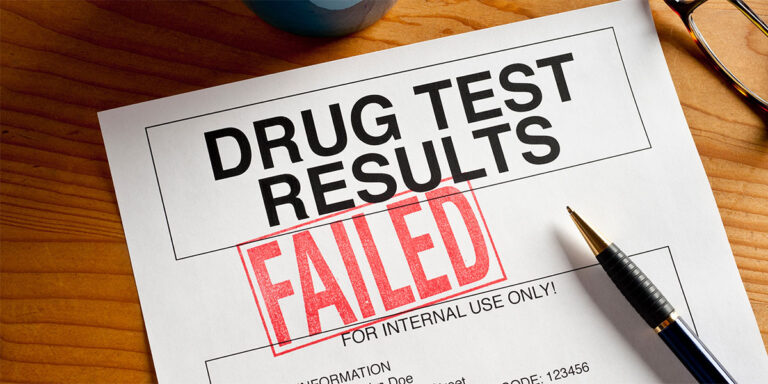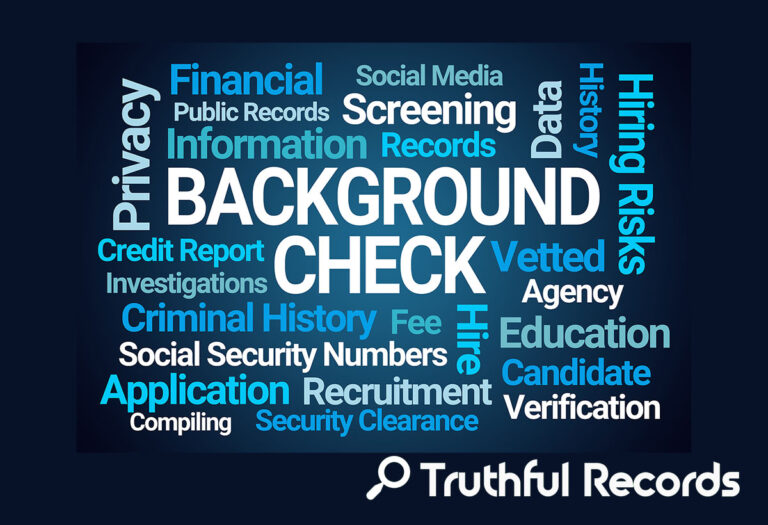How to Request Your Background Report: Step-by-Step Guide
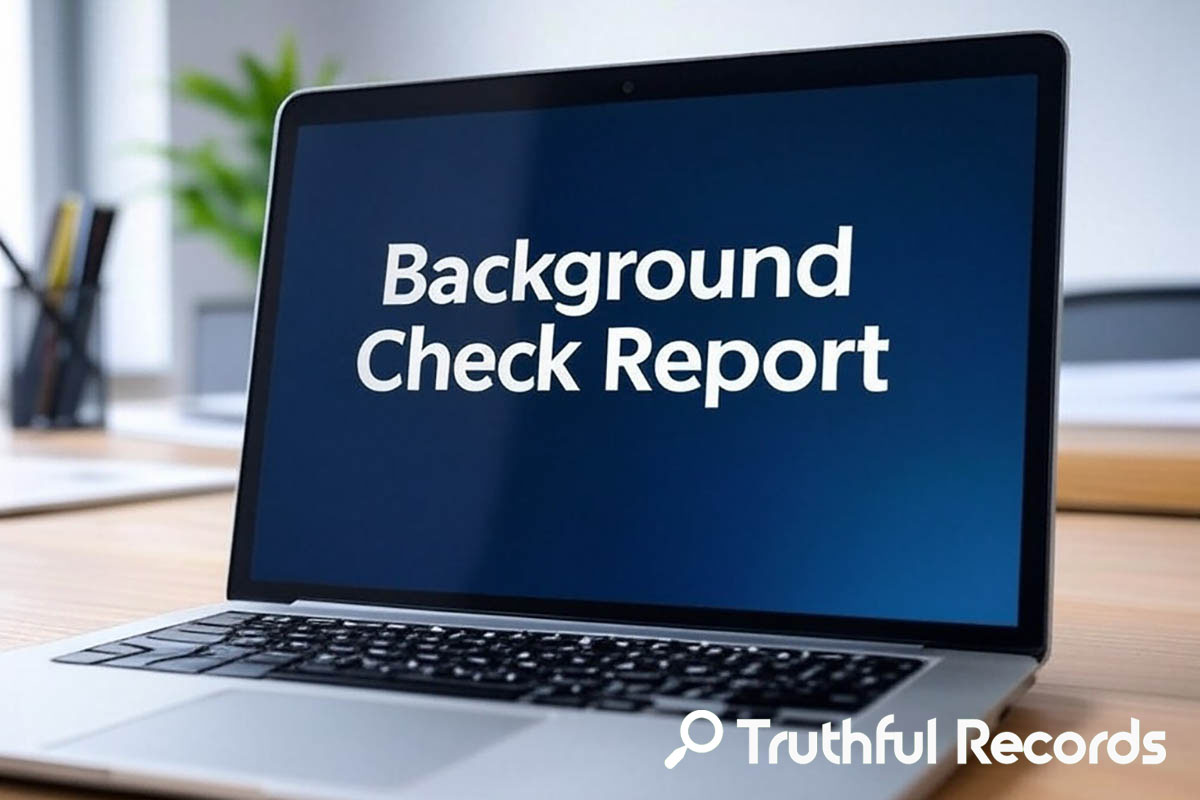
Did you know you have a legal right to get a free copy of your background report once per year? But, shockingly, only 36% of Americans participate! I’m someone who’s helped tons of folks through the process — and I can tell you getting your background report is way less daunting than you might expect. Here’s how to capture this key information — whether you’re on a job search, apartment search, or just keeping track of those personal details! For a complete overview, read our full guide.
Understanding Your Right to Access

It’s important to know your rights when it comes to accessing your personal background information. Here’s a breakdown of what you need to understand about your legal entitlements and how to access your reports.
Legal Entitlements
You have certain rights under the law when it comes to getting your personal background reports.
- FCRA rights overview: The Fair Credit Reporting Act (FCRA) gives you the right to access your consumer reports. This includes any background check data that companies may use to make decisions about you.
- Free report eligibility: Under the FCRA, you’re entitled to a free report once every 12 months from each of the three major credit bureaus (Equifax, Experian, and TransUnion). This is great for staying informed and ensuring your information is accurate.
- Access frequency limits: You can request a free report every 12 months from each credit bureau. However, if you need more reports within the year, you may have to pay or request a report through specific services, like when you’re applying for a job or rental.
Types of Reports Available
There are different types of background checks and reports you can access, depending on your needs.
- Consumer reports: These reports are used to gather information on your credit history, payment patterns, and overall financial behavior. They are typically used by lenders, landlords, or anyone looking to assess your financial responsibility.
- Employment screenings: Employers often run background checks to verify your employment history, criminal records, and overall suitability for a role. You have the right to access this report, especially if you’re applying for jobs.
- Investigative reports: These reports dive deeper into personal details, including interviews and references. They might be used for more thorough background checks in sensitive roles or investigations. You can request these reports if they’ve been used to evaluate you.
Information Sources
Background reports come from several different sources, depending on the type of check.
- Credit bureaus: The three major credit bureaus (Equifax, Experian, and TransUnion) are the go-to places for pulling credit reports and consumer data. These bureaus gather information about your financial behavior from various sources, such as credit card companies and banks.
- Background check companies: Private companies also offer background check services, collecting data from various public and private sources. These companies can run criminal background checks, verify employment, and more.
- Government agencies: Some reports, especially those related to criminal records, licenses, and certain legal matters, come from government agencies. These can include local, state, and federal records, which are often used in comprehensive background checks.
Understanding your rights and where to get your reports from can help you take control of your personal data and ensure it’s accurate and up to date!
Steps to Prepare Your Request

Before contacting for your background or personal report you should prepare. Here’s a look at what you’ll need to collect and how you can go about submitting your request.
Documents Needed
Here are the documents that you may need to submit in order to ensure your request is processed smoothly.
- Identity verification: You will have to verify your identity. Generally, you’ll need a government-issued ID (such as a driver’s license or passport) to verify your identity.
- Proof of address: Certain requests, particularly for credit or to check your criminal history, require proof of your present address. These can be utility bills, bank statements or the lease agreement on your apartment.
- Extra forms: You may need to submit more forms, depending on what kind of check you’re having done. Some checks, for instance, may require consent forms, background check release forms, or other specific requests for information.
Information About Yourself Required
Have the relevant personal information on hand to process your request.
- Basic details: Includes your full name, date of birth and Social Security number, sometimes your mother’s maiden name. These details help correctly match your information to the records.
- History coverage: Be prepared to confirm any of the details on your report, including your past addresses, history of employment or anything concerning criminal history that may show up on the report. That will cover your basis for making the request.
- Supporting documents: You may need additional supporting documents, depending on the type of request. For a more in-depth background check, this may involve submitting items like court documents or proof of employment.
Methods to Request
Typically, there are multiple methods to submit your request to the service or businesses that you’re interacting with.
- Online submission: One of the quickest and most convenient methods of getting your background check is usually submitting online. Many agencies accept everything digitally, which can help you feel like the process is going faster.
- Mail requests: If you would rather not submit online and a service requests a paper request, mailing your documents and forms is also an option. Make sure you send it to the right address and you enclose all of the correct paperwork.
- Request by phone: Some services let you request your report over the phone. This process usually involves verifying your identity and may require paperwork in follow-up.
Having all the required documents correct and selecting the appropriate method is key to a much easier and faster submission process,
Asking from Credit Bureaus
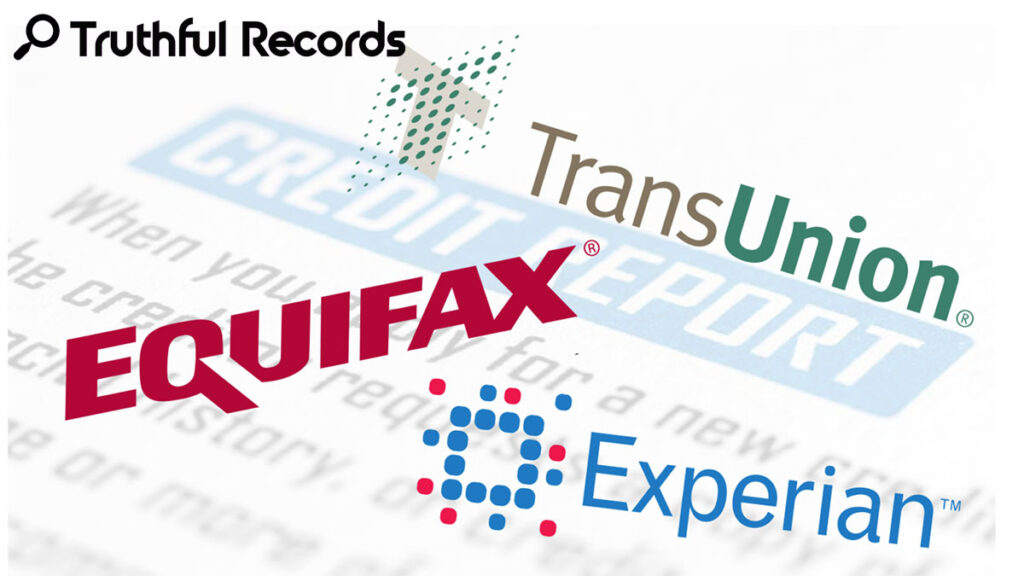
Once you are ready to put in a background check or credit report request, next is to understand the method to follow for every credit bureau. Here’s how to get your report from the big bureaus and what to think about for special cases.
Big Three Bureau Requests
You can request your credit report directly from the three major credit bureaus. Here’s how to do it with each of them.
- Equifax method: You can apply for your credit report through Equifax either by going to their website, calling their customer support or by mail. Have your full name, Social Security number and current address ready to confirm your identity. Equifax gives you access to your report for free periodically as well, once a year.
- Experian processes: Experian provides access online via its website to your report. You can request a free report annually or subscribe to other services, such as credit monitoring. If you’re sending your request in the mail, be sure to enclose your personal information and ID documents, to be able to process your request.
- Steps with TransUnion: The process is similar to the other two. Once a year, you can obtain your free report online. If you’d like extra services, such as alerts or monitoring on your credit, those are available, but for a fee. Please note that mailed requests will require ID and could take longer to be processed.
Centralized Request Service
If you would like to request reports from all three bureaus at once, there’s a centralized service:
- AnnualCreditReport. com: This is the official site to request your free annual credit report from all three bureaus. It’s quick, easy and safe to obtain your reports from Equifax, Experian and TransUnion all at once.
- Joint report possibilities: If you ultimately want to see your data from all three bureaus collected in one location, many services can also provide that. This can be helpful if you want to see the variation in your scores and details across bureaus without having to check one at a time.
- Processing Details: Timeframes when requesting through AnnualCreditReport. They expect reports to be ordered online in most cases through say … e.g. www. com … you’ll have your report almost instantly. If you ask this by mail, processing might take a few weeks.
Special Circumstances
Your credit report may also be impacted by fraud and identity theft in some cases. Here are the steps to take in these situations.
- Fraud alerts: If you think you might be a fraud target, you can add a fraud alert to your credit file. This alerts creditors to exercise caution before extending credit in your name.
- Security freezes: For the “permanent” protection of preventing anyone from accessing your credit report, you can put a security freeze in place. This is sometimes suggested if you’re worried about identity theft. It prevents anyone from accessing your credit without your permission.
- Identity theft: If your personal information has been compromised, you can request a credit report to help you monitor your information and identify potentially fraudulent activity. Some services will also provide credit reports at no charge if you are a victim of identity theft.
These steps should give you easy access to your credit report, whether directly from a single bureau or a central service. Always remember to look out for fraud or discrepancies in your report!
Employment Background Reports

Hiring background checks are an important portion of the recruitment process, enabling companies to confirm whether a candidate is qualified and matches a position. Here’s a rundown of what to know about employment background reports.
Current Employer Background Checks
When your current employer requests a background check, they go through a standard process.
- Request procedures: Your employer will generally request your permission before running a background check. It could mean completing a consent form so that they can obtain certain information — such as criminal records or credit reports — on your behalf.
- Employer obligations: Employers must follow laws such as the Fair Credit Reporting Act (FCRA) and ensure the background check serves a legitimate purpose (e.g., hiring, promoting). You are also entitled to a copy of the report if there is any adverse decision based on it.
- Timeline expectations: The time it takes to complete a background check can differ depending on the circumstances, but most often it takes several days to a maximum of two weeks. How long this takes depends on the type and extent of the background check being performed.
Checking Previous Employment
There are some variables with respect to access as well as company policies associated with background checks for past employment.
- Access rights: You retain the right to know when your former employers are contacted for background verifications. Should a potential employer contact the company to confirm your employment, they must inform you.
- Policies of the company: Companies can check employment for each of the organizations differently. Some will confirm only dates of employment and jobs in which you worked, while others might offer up more information, including how you performed in that role.
- Request methods: Employers or agencies generally contact your previous employers by phone, email or mail. A few companies might also offer an online verification service to confirm your employment more quickly.
Third-Party Checks
Employers sometimes outsource background checks to third-party agencies. They simplify the process, but each also has its own procedures.
- Agency requests: If the employer engages a third party agency, the employer will request the agency to perform the background check, during which they will often reach out to pull relevant information, like criminal records, employment history or education verification.
- Service providers: Service providers for employment background checks vary widely, with companies like Checkr, Sterling and First Advantage. Different companies provide the screening of employers’ requirements with varying degree.
- Report delivery: Once the background check is complete, the service provider provides the report to the employer, typically in digital format. It gives the employer what they need to determine if they want you to join their team.
But consider this as a helpful guide towards passing this background check, so you have a smooth journey to getting hired.
Government Record Requests
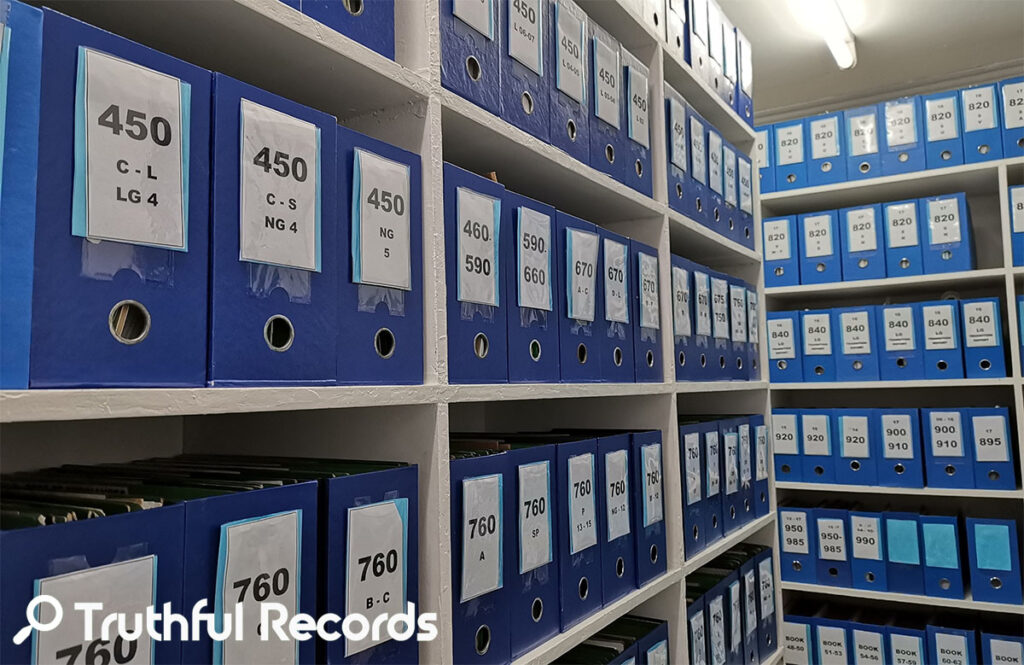
When it comes to government records, there are various steps and procedures for accessing different types of information. Here’s a breakdown of what you need to know when requesting government records.
Criminal Records
Criminal record checks vary depending on whether you’re accessing state, federal, or local records.
- State procedures: Each state has its own procedure for requesting criminal records, often through the state police or state department of justice. You’ll usually need to submit a request form and provide proof of identity. In some states, you may be required to get fingerprinted.
- Federal requests: If you’re looking for federal criminal records, the FBI is the go-to agency. The process involves submitting an application and getting fingerprinted. It may take longer than state-level requests and often involves a fee.
- Local records: Local criminal records are typically held by county or city police departments or courts. These records are often easier to access and can be requested in person, by mail, or online. Local records may be less comprehensive than state or federal records, depending on the jurisdiction.
Public Records
Public records include a broad range of documents, from court filings to administrative documents. Here’s how to access them.
- Court documents: Court records, including civil and criminal cases, are generally public, though access to certain details may be restricted. You can request these documents through the court where the case was filed, either online, by mail, or in person.
- Civil records: Civil records may include things like divorce decrees, contracts, or judgments. These can often be requested from local or state government offices, such as county clerks or courts, and can sometimes be accessed online.
- Administrative files: These include records held by government agencies related to permits, licenses, inspections, or zoning. These documents are typically available to the public and can often be accessed through the relevant government office or online databases.
Special Access Rules
Some records are more sensitive and may require special permission to access. Here’s what to keep in mind.
- Restricted records: Certain records, like juvenile criminal records or sealed documents, are restricted by law. Accessing these records usually requires a court order or legal justification.
- Clearance requirements: For some types of records, especially those related to national security or sensitive government information, you may need to undergo a security clearance process to access them. This typically applies to federal employees or contractors.
- Authorization needs: In some cases, you may need written consent or authorization from the individual whose records you’re trying to access. This is common in cases involving private information, like medical records or personal histories.
Navigating government record requests can be tricky, but knowing the right procedures and requirements can help you access the information you need efficiently.
Following Up on Requests

Once you’ve submitted your request for a background check or government record, it’s essential to keep track of the process and handle any delays. Here’s how to stay on top of it.
Tracking Status
It’s important to stay informed about the status of your request, especially if it’s taking longer than expected.
- Online monitoring: Many services offer an online portal where you can track the progress of your request in real-time. This lets you know if it’s been processed, if additional information is needed, or if there are any delays.
- Contact methods: If online tracking isn’t available, you can reach out by phone or email. Having your request number or other identifying information ready will help the customer service team assist you more quickly.
- Timeline tracking: Keep an eye on the expected timeline for receiving your report. Typically, it should take anywhere from a few days to a few weeks, depending on the type of report and the service provider. If you’re nearing the end of the expected timeframe, it’s a good time to check in.
Handling Delays
Sometimes, your request might experience delays. Here’s how to handle those situations.
- Common issues: Delays can happen for a variety of reasons, such as missing documentation, high demand, or unexpected issues with verification. It’s important to be patient, but also proactive in getting updates.
- Resolution steps: If you’re experiencing delays, contact the agency or provider and ask for an update. Ensure you’ve submitted all necessary documents and that there are no issues on your end. If anything is missing or incorrect, provide the needed information promptly.
- Escalation procedures: If the delay continues without resolution, you can escalate the issue. Ask to speak with a supervisor or manager who can provide a higher level of support and move things along faster.
Record Receipt
Once your background check or record request is complete, you’ll need to receive your report. Here’s what to expect.
- Report delivery: Most reports are delivered electronically through email or via an online portal. However, some services still deliver paper copies by mail, especially for more formal records or legal documents.
- Format options: Depending on the service, you can often choose how you want to receive the report—either in digital format (PDF) or printed form. Digital reports are faster to receive and easier to store, but you can request paper copies if needed.
- Storage recommendations: For digital reports, it’s recommended that you store them in a secure, password-protected file or cloud storage. If you receive a paper copy, store it in a safe place, like a locked drawer or filing cabinet, to protect your personal information.
By tracking your request, handling delays efficiently, and safely storing your records, you can ensure the background check process goes smoothly from start to finish!
Next Steps After Receipt

Once you’ve received your background check or government report, it’s essential to review and act on the information. Here’s how to move forward after receiving your records.
Report Review
It’s important to go through your report carefully to ensure everything is correct.
- Accuracy check: Review every section of the report to make sure your personal information (name, address, Social Security number, etc.) is accurate. Even small errors can have a big impact, so it’s crucial to check everything thoroughly.
- Error identification: If you notice any discrepancies or mistakes, mark them for correction. Common errors include misspelled names, incorrect dates, or outdated addresses.
- Information verification: Cross-check the details with your own records. For example, verify employment history or criminal records by comparing them with your personal documents or past reports.
Taking Action
If you spot any errors or discrepancies in your report, you’ll need to take steps to correct them.
- Correction requests: If you find mistakes, contact the agency or service provider and request corrections. You’ll typically need to provide supporting documents or evidence to back up your claims.
- Update procedures: Follow the required process to update your report. This could involve submitting forms, providing additional information, or even filing a formal dispute. The agency will review the information and make the necessary changes.
- Dispute processes: If the corrections aren’t made easily, you may need to go through a formal dispute process. This could involve submitting a dispute letter or filing a complaint with the relevant regulatory body. Be sure to document everything for your records.
Ongoing Monitoring
After you’ve reviewed and corrected your report, it’s a good idea to monitor it regularly to ensure everything stays accurate.
- Regular checks: Set a reminder to check your background report or credit report at least once a year. This helps you stay aware of any changes and catch potential issues early.
- Alert systems: Many services offer alert systems that notify you when there are significant changes to your report. Setting up these alerts can help you stay informed and quickly address any discrepancies.
- Update frequency: Depending on your needs, you may want to check your report more frequently if you’re monitoring a specific aspect, like your credit score or criminal history. Regular updates can help keep you on top of your personal information and ensure it stays accurate.
By reviewing your report carefully, taking action on any errors, and monitoring your information over time, you can stay in control of your personal data and ensure its accuracy.
Conclusion
Requesting your background report is your right and a key step in keeping your personal info in check. By following the steps in this guide, you’ll be able to easily get your records and make sure everything’s accurate. Don’t forget to review them regularly and act quickly if you notice any issues. Start the request process today and take charge of your background info!



